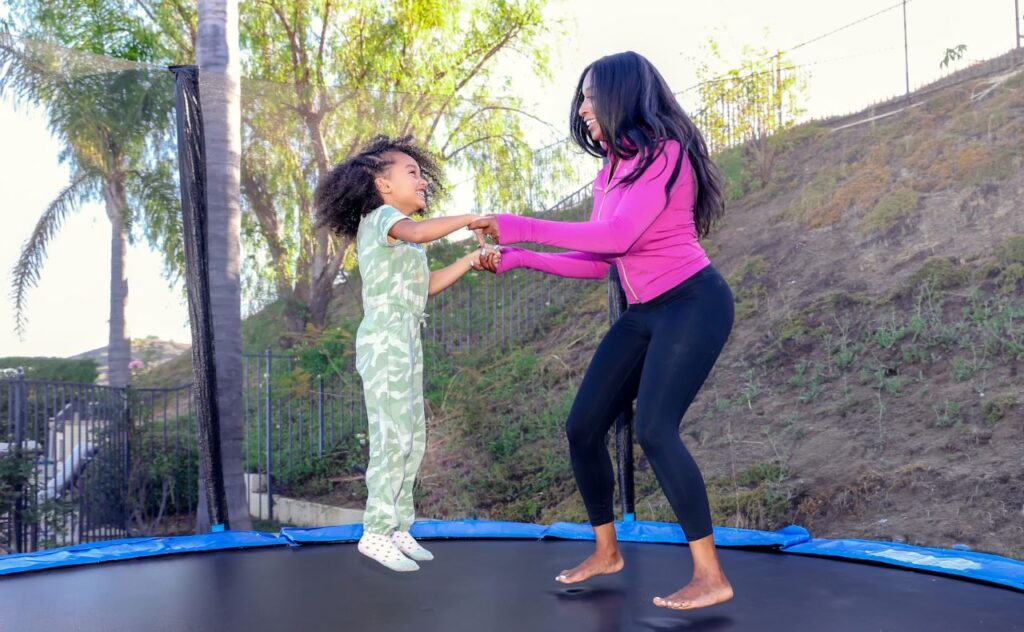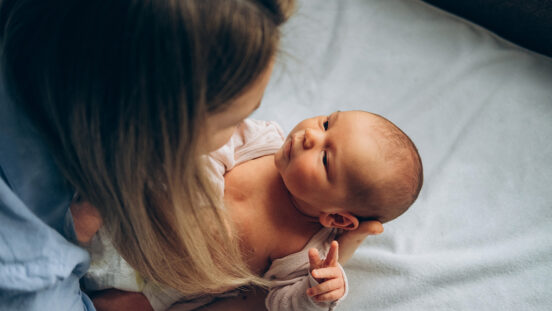Are you one of the 1 in 3 women who live with bladder leakage?

Find out how to fix the problem – with expert advice for free!
One in three women experience bladder leakage at some point in ther lives and it’s time to bring the topic into the spotlight so women feel less embarrassed or ashamed and know that help is available. It’s not something people have to simply live with.
Help is at hand as about 70% of women who received specialised physio treatment can see their symptoms improve or resolve themselves, says physiotherapist and mum-of-two Caitlin Dunsford.
Help with bladder leakage
Caitlin (aka @pelvicfloorwithcaitlin) has teamed up with Poise for a passion project to support and educate women of all ages so they don’t have to live with bladder leakage.
At the Art Gallery of NSW in July 2023, Gabrielle Davidson from Kimberly-Clark introduced the Poise Pledge to break the stigma around bladder leakage. Podcast host and mum Gemma Pranita chatted with women’s health physio Caitlin Dunsford; model, mum and host Fiona Falkiner; mum, grandma and physical trainer Meg Vanderheg, about their personal experiences with bladder leakage.
They have all had leaks at various times and feel strongly that women need more education, information and support about what is ‘normal’ in their own bodies.
Watch the video launch here and find out more about their personal stories.
If you’re pregnant and experiencing bladder leakage, you might think it’s a common thing when you’re carrying a new human. And it is common, Poise research found that four in five pregnant women leak during pregnancy.
According to Poise, “Over 80% of Australian mothers experience bladder leakage but shockingly over half of these mothers think they are the only ones living with this condition.”
Bladder leakage: who has it, the impact on life, causes and getting help
There is no one best way to prevent bladder leakage and not all bladder leakage can be resolved entirely – every case is different, so it’s important to talk to your GP about your situation. Remember: one in three women live with this! You are not alone; don’t be embarrassed.
Caitlin Dunsford suggests starting pelvic floor exercises during pregnancy to help “strengthen, lengthen and coordinate” the sling of muscles that support your bladder.

Women who suffer from bladder leakage
If you’re pregnant and haven’t had bladder leakage before, you might think that it’s something that happens when you’re growing a human. Take a look at the range of women and the things that can cause bladder leakage, or make it worse:
Who gets bladder leakage?
Women of all ages and life stages can get bladder leakage, including:
- Teenagers
- Athletes
- Pregnant women
- Postpartum women
- Menopausal women
The impact on women’s lives:
Bladder leakage can become an issue that impacts women’s lives:
- Avoid certain clothes
- Worried about odours
- Avoid socialising
- Stop doing physical things they love (sport, playing with kids)
Some causes of bladder leakage (that aren’t pregnancy!):
Physio Caitlin says that the first point on this list is a major factor:
- Constipation
- Spicy foods, caffeine, alcohol
- Weight gain

Why don’t more women get help?
There are heaps of reasons women don’t seek help for bladder leakage; here are few:
- Don’t know that they don’t have to live with it
- Embarrassment
- Time/too busy
- Bottom of priority list
- Cost
- Location
Pelvic Floor Support Hub
Women often put themselves and their health at end of their to-do list so the Poise Pledge is helping to put a spotlight on the important topic of bladder leakage and help women put themselves first.
“Together with Poise, we developed six graded and progressive pelvic floor workouts that are designed to help you gain better awareness and strength of your pelvic floor muscles,” says Caitlin.
The Pelvic Floor Support Hub is completely free and you can sign up to get information on pelvic floor health, follow as 12-week exercise plan and use six excellent videos so you can get physio-style exercises in your own home. No babysitter, no cost, no embarrassment. And, hopefully, no more bladder leakage!




